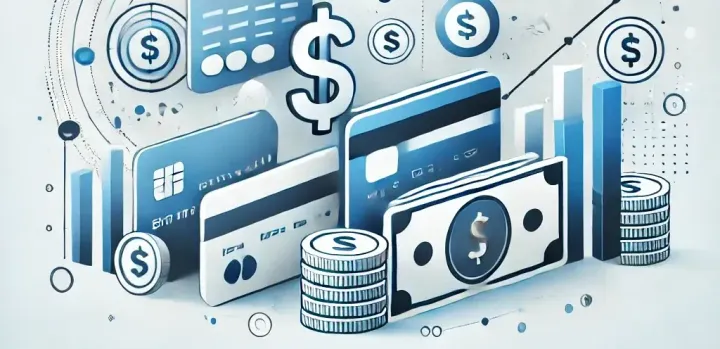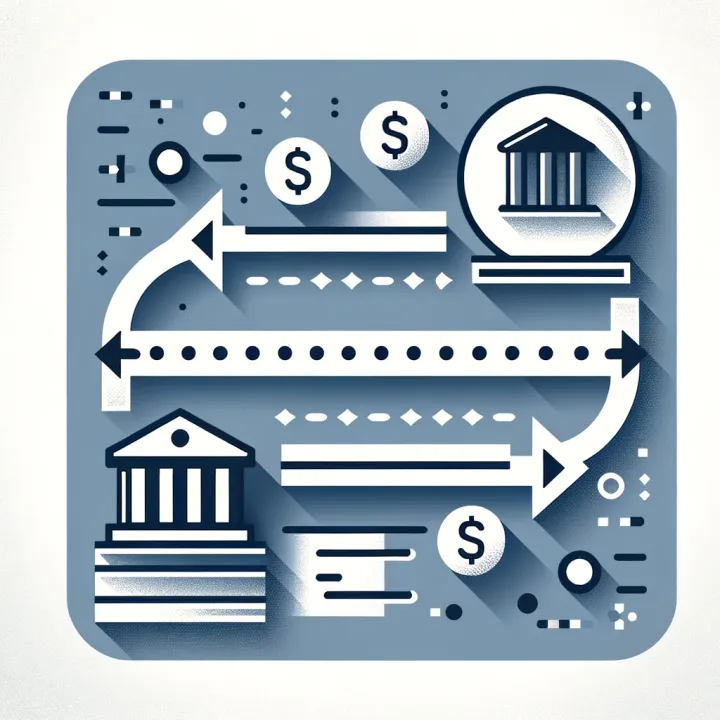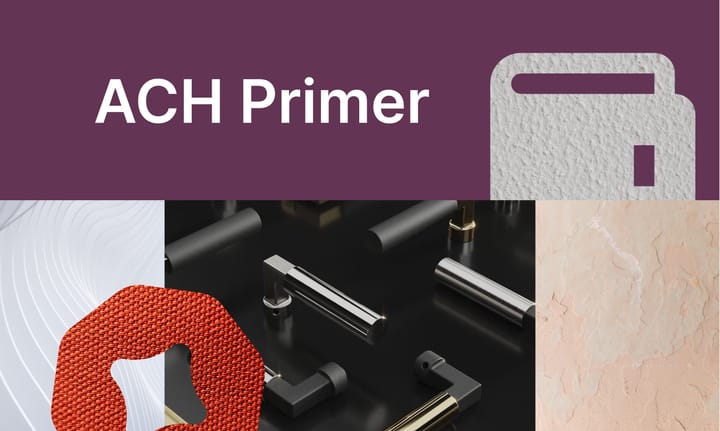Guide to the best payment methods for construction suppliers
A complete guide to the Top 15 payment methods available to construction material suppliers and recommendations for evaluating and selecting the right ones for your business.

A complete guide to the Top 15 payment methods available to construction material suppliers and recommendations for evaluating and selecting the right ones for your business.

Processing payments used to be a simple and uneventful activity for construction suppliers. Until recently, you'd either collect cash on delivery or wait for a check in the mail. However, modern payments like ACH, eChecks, and Digital Wallets have taken off since the 2010s. Gartner estimates that 80% of all business-to-business transactions will be digital by 2025.
Even contractors, architects, and homeowners are jumping on board. Accepting payment methods other than cash or check will soon be a necessity for all building material suppliers.
This guide will break down the best payment methods for the construction industry. We'll also help you evaluate and identify the right ones for your business model and customers.
While cash and checks are simple and battle-tested, they are also plagued by fraud, theft, and other limitations. Modern payment methods are designed to close the gap and support more complex types of transactions, merchants, and buyers.
For example, many building material suppliers request that a balance payment be made and received in full before shipment. Waiting on a check can delay this process by a week or even longer if it bounces. A faster and cheaper alternative is to accept a same-day ACH payment.
Using payment methods that customers prefer and fit your unique billing process can unlock concrete benefits for your construction supplies business:
Construction materials is a complex industry unlike any other. So unsurprisingly, choosing the right payment methods to accept comes with its own unique set of challenges and considerations:
In this section, we'll arm you with a Cheat Sheet covering the Top 15 payment methods for construction suppliers and make specific recommendations based on your business model and customers.
With dozens of payment methods to choose from, it's essential to systematically evaluate and compare your options.
We have compiled a list of 15 payment methods best suited for building materials sellers across six categories: 1) Traditional Methods, 2) Cards, 3) Bank Transfers, 4) Digital Wallets, 5) Peer to Peer, and 6) Alternative Payments/Lending.
To help you quickly and efficiently evaluate payment methods, we've spotlighted seven key attributes:

Every building materials business is different. So, it's hard to generalize and recommend a set of payment methods that will work for everyone. However, below are some quick suggestions that can serve as a starting point for you.
You can also schedule a free consultation with one of our payment experts to receive personalized recommendations for your business.
For suppliers that primarily work with:
For suppliers that need to manage:
Nickel is the first payment software designed for the construction materials industry. Material suppliers use Nickel to accept diverse payment methods and automatically collect sales tax and lien waivers. Nickel offers the fastest payment experience for your customers and is the only platform that saves you money on transaction fees.
Physical payment methods have been used to exchange money between businesses for decades. They've been the default form of payment for centuries, representing a direct exchange of physical currency between parties
Cash is king in construction! And for good reasons. The transaction is instant, with the recipient receiving tangible bills without processing time or fees. However, carrying large amounts of cash can pose security risks, and there's no transaction record unless a receipt is provided.
Transaction Limit
None, but transactions above $10K require additional documentation due to federal Anti-Money Laundering regulation
Merchant Fees
None
Merchant Risk
Carries the highest risk of fraud. Merchants can be scammed by counterfeit bills and are susceptible to theft, loss, and accounting errors.
Reversible
No
Reversal limit
None
Payment Confirmation
Instant
Settlement Time
Instant
Checks are written orders that instruct a bank to pay a specified amount from the check writer's account to the person or entity named. They've been a staple in the payment system for decades, offering a paper trail of transactions. While checks are still accepted in many places, they can take several days to process, and there's potential for bounced checks if there are insufficient funds. This can be difficult to recover, especially across state lines.
Transaction Limit
None, but banks can withhold funds on larger transactions
Merchant Fees
None
Merchant Risk
Checks carry significant risk for the merchant. Washed and fraudulent checks have become increasingly common since COVID. There are also additional risks for theft, loss/misplacement, and bounced checks.
Reversible
Yes, but only under certain circumstances
Reversal limit
30 - 60 days
Payment Confirmation
Delayed
Settlement Time
5 - 10 Days
Card payments, encompassing debit cards, credit cards, and charge cards, offer a versatile and widely accepted method for conducting transactions, both online and offline, by drawing upon either the user's bank account balance or a pre-approved credit limit. Card payments often come with additional features such as reward programs, cash-back offers, and heightened security measures, making them a convenient and preferred choice for consumers and business payers.
Credit cards allow customers to borrow funds up to a set limit for their purchases. As a merchant, accepting credit cards can increase sales as it offers customers the flexibility to pay later. However, each transaction comes with hefty processing fees, and there's a potential risk of chargebacks.
Transaction Limit
Credit cards have monthly transaction limits and a soft cap on single transactions for fraud reasons.
Merchant Fees
Up to 3.5%, depending on the card and payment processor.
Merchant Risk
Credit cards carry the highest risk of fraud. Additionally, unauthorized or fraudulent transactions can lead to chargebacks, potentially causing revenue loss and penalty fees.
Reversible
Yes
Reversal limit
60 - 90 Days
Payment Confirmation
Instant
Settlement Time
1- 3 Days
Directly linked to the customer's bank account, debit cards deduct funds immediately upon purchase. Unlike credit cards, they only allow spending up to the available balance in the account. They provide a convenient and fast payment method with significantly lower transaction fees. But most banks limit single debit card transactions to a maximum of $10K.
Transaction Limit
Up to $10K per single transaction, but varies by bank
Merchant Fees
~0.25%, depending on the card and payment processor
Merchant Risk
Like credit cards, there's a risk of fraud, chargebacks, and compromised card details that can lead to unauthorized transactions.
Reversible
Yes
Reversal limit
30 - 60 Days
Payment Confirmation
Instant
Settlement Time
1- 3 Days
Business or Charge Cards are designed specifically for business expenses. They often come with higher spending limits and detailed expense reporting. However, some charge cards like Amex carry high fees for the merchant and are not always supported by POS systems and payment processors.
Transaction Limit
Business credit cards typically have a higher monthly transaction limit than normal ones. Many charge cards do not place any hard caps. But will reject transactions if they surpass a "soft limit" or exceed the expected transaction size.
Merchant Fees
Up to 3.5%, depending on the card and payment processor
Merchant Risk
Same as regular credit cards
Reversible
Yes
Reversal limit
60 - 90 Days
Payment Confirmation
Instant
Settlement Time
1- 3 Days
Bank Transfers are a form of electronic payment made by transferring funds directly from one bank account to another. Modern bank transfer methods were developed in the 1970s and have become a fast and affordable payment method popular with businesses and consumers.
Standard ACH (Automated Clearing House) facilitates electronic transactions between banks. Funds are transferred directly from one bank account to another, typically taking 1-3 business days. It's a popular method for regular payments like salaries and bills due to its cost-effectiveness and efficiency.
Transaction Limit
Up to $1M per transaction, but can vary by bank
Merchant Fees
Up to $10, but some banks and payment processors offer ACH payments for free.
Merchant Risk
Typically considered low risk of fraud. However, unauthorized debits can be initiated if security is compromised. Additionally, transactions can be reversed by customers, which can lead to unpredicted financial discrepancies.
Reversible
Yes
Reversal limit
Business payments: 2 Days
Consumer payment: 60 Days
Payment Confirmation
Delayed
Settlement Time
2 - 5 Days
Same Day ACH operates similarly to Standard ACH but expedites the process. Transactions submitted by specific cutoff times are completed on the same day. It's useful for urgent transactions, though it might incur higher fees.
Transaction Limit
Up to $100K per transaction, but can vary by bank
Merchant Fees
Up to $25
Merchant Risk
Similar to regular ACH payments. However, the expedited nature can increase the potential for transaction errors, which may be difficult to correct in time.
Reversible
Yes
Reversal limit
Business payments: 2 Days
Consumer payment: 60 Days
Payment Confirmation
Delayed
Settlement Time
Same day
eChecks are electronic versions of traditional paper checks, drawing money directly from the payer's bank account. They process faster than physical checks, offering convenience and reducing the paper trail. eChecks share the same payment infrastructure as ACH and have the same limitations and risks.
Transaction Limit
Up to $1M per transaction, but can vary by bank
Merchant Fees
Up to $10, but some banks and payment processors offer ACH payments for free.
Merchant Risk
Same as ACH
Reversible
Yes
Reversal limit
Business payments: 2 Days
Consumer payment: 60 Days
Payment Confirmation
Delayed
Settlement Time
2 - 5 Days
Wire transfers are real-time methods to move money from one bank to another. It's one of the few payment methods that support international transfers. They are secure and rapid but can come with higher fees. They're commonly used in the construction industry for large-sum transactions.
Transaction Limit
Up to $10M per transaction, but can vary by bank
Merchant Fees
$25 - $50
Merchant Risk
While consumer wire fraud is prevalent, wire transfers are relatively safe for merchants. However, errors in sending can be challenging to rectify due to their irreversible nature.
Reversible
No
Reversal limit
None
Payment Confirmation
Delayed
Settlement Time
Same or Next Day
Real-Time Payment systems process transactions instantly, 24/7. They provide immediate payment confirmation, aiding cash flow and transaction clarity. The Clearing House's RTP system and the Federal Reserve's FedNow service are the two most prevalent real-time payment methods in the US.
Transaction Limit
Up to $1M per transaction, but can vary by bank
Merchant Fees
Up to $10
Merchant Risk
Real-time payments are very safe, but errors in sending can be challenging to rectify due to their irreversible nature.
Reversible
No
Reversal limit
None
Payment Confirmation
Instant
Settlement Time
Instant
A digital wallet, or an e-wallet or mobile wallet, is a payment method that lets customers make payments using accounts stored on their smartphones and other devices. A digital wallet will securely pull up and use the underlying card or account as the payment method when making a transaction.
A digital wallet for Apple device users, Apple Pay offers a secure payment method. Customers authorize transactions using biometrics or a passcode. Accepting Apple Pay provides a streamlined payment experience, potentially reducing checkout friction and abandoned carts.
Transaction Limit
Varies depending on the underlying account
Merchant Fees
Varies depending on the underlying account
Merchant Risk
Very low risk because payments are authorized using FaceID and similar technology and are processed through secure networks.
Reversible
Yes
Reversal limit
30 - 90 Days
Payment Confirmation
Instant
Settlement Time
1- 3 Days
Google Pay, formerly known as Google Pay, operates similarly to Apple Pay, storing payment details on Android devices and Google accounts. Users can tap their device on compatible payment terminals or select Google Pay online. Transactions are secured with layers of encryption and unique transaction numbers.
Transaction Limit
Varies depending on the underlying account
Merchant Fees
Varies depending on the underlying account
Merchant Risk
Very low risk because payments are authorized using FaceID and similar technology and are processed through secure networks.
Reversible
Yes
Reversal limit
30 - 90 Days
Payment Confirmation
Instant
Settlement Time
1- 3 Days
Peer-to-peer is a type of digital payment made directly between individuals or businesses without relying on a financial institution to process the transaction. But Peer-to-Peer payments typically require using a third-party platform such as Zelle or Venmo and a bank account to cash out your funds.
Zelle is a rapid digital payment network that allows customers to transfer funds using just an email or phone number. Partnered with many US banks, Zelle transactions are instant and often free. It's a straightforward option for merchants wanting swift peer-to-peer transactions.
Transaction Limit
$40K per month. Single transaction limit varies by bank
Merchant Fees
None
Merchant Risk
Low risk, but payments are instant and irreversible, making them susceptible to potential fraud if not adequately verified.
Reversible
No
Reversal limit
None
Payment Confirmation
Instant
Settlement Time
Instant
Venmo is a mobile payment service owned by PayPal. Users can send or request money via the app using the counterparty's username or email address. It was primarily used for transactions between friends and family. But in the last two years, many businesses have also started accepting Venmo payments.
Transaction Limit
$3K per transaction
Merchant Fees
None
Merchant Risk
Low risk, but payments are instant and irreversible, making them susceptible to potential fraud if not adequately verified.
Reversible
No
Reversal limit
None
Payment Confirmation
Instant
Settlement Time
3 - 5 Days
There has yet to be a consensus on what is considered an Alternative Payment method. Some, like cryptocurrencies, are irrelevant to the construction industry. So, for this guide, we'll focus on the emerging category of Buy Now, Pay Later solutions.
Services like Affirm or Afterpay allow customers to defer or split payments into installments. These services can increase purchase rates by offering consumers more payment flexibility. You'll receive payments upfront as a merchant, but partnering might involve sharing a fraction of the sale with the service provider.
Unfortunately, most Buy Now, Pay Later solutions are only available to the consumer goods industry. But companies like Nickel are bringing deferred payments to the construction industry. Learn More.
Transaction Limit
Varies by provider, but commonly $25,000
Merchant Fees
Varies by provider, but roughly 6%
Merchant Risk
If customers default on their installment payments, you risk revenue loss, and dependency on a third-party provider can introduce unpredicted challenges.
Reversible
Yes
Reversal limit
Varies
Payment Confirmation
Instant
Settlement Time
3 - 5 Days



Comments ()